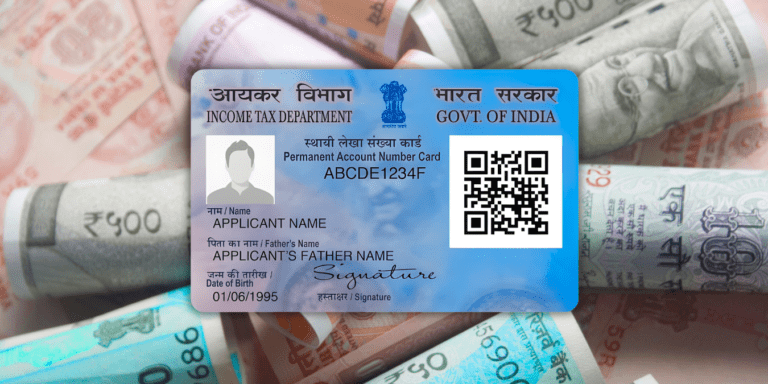
Income Tax Audit 2025: Why India’s Business Owners and CAs Demand a November Deadline Extension
Will India’s tax audit deadline spark chaos or relief in 2025? With September 30 looming, businesses and CAs face a perfect storm: portal crashes, delayed forms, and festive disruptions. ICAI and trade bodies demand a November extension, but will the CBDT budge? Uncover why only 8% of audits are done, the hidden penalties lurking, and expert tips to beat the crunch.
The September 30, 2025, income tax audit deadline for FY 2024–25 (AY 2025–26) has Indian business owners and Chartered Accountants (CAs) under unprecedented pressure. From persistent portal glitches to late-released forms and a festive season reducing working days, the compliance burden is overwhelming. Industry leaders, including the Institute of Chartered Accountants of India (ICAI) and regional commerce bodies, are urging the Central Board of Direct Taxes (CBDT) for a November extension to ease the strain. This blog dives into the challenges, solutions, and strategies to navigate the 2025 tax audit season, offering actionable insights for businesses and professionals.
Recent Events: Why 2025 Feels Different
Every year, Indian businesses and CAs brace for the tax audit marathon under Section 44AB of the Income Tax Act, 1961. However, 2025 has brought unique challenges: delayed utility releases, new reporting formats, technical issues with the income tax portal, and a festive calendar squeezing the compliance window. On September 15, 2025, the CBDT extended the non-audit ITR deadline to September 16 due to portal issues, but the audit deadline remains unchanged, intensifying stress for the professional and business communities. With only 8% of the estimated 4 million annual audits completed by mid-September, the call for a November extension grows louder.
Key Deadlines for FY 2024–25 (AY 2025–26)
Understanding the deadlines is critical for compliance. Here’s a quick overview:
| Taxpayer Type | Tax Audit Report (TAR) Due Date | ITR Filing Due Date |
| Audit Cases (Section 44AB) | September 30, 2025 | October 31, 2025 |
| International/Specified Domestic Transactions | October 31, 2025 | November 30, 2025 |
| Non-Audit Cases | Not Applicable | September 16, 2025 |
| Belated/Revised Return | Not Applicable | December 31, 2025 |
These timelines, especially for audit cases, are under scrutiny due to logistical and systemic hurdles.
Why Are Business Owners and CAs Pushing for an Extension?
The demand for a November deadline extension stems from a confluence of challenges that have made timely compliance nearly impossible. Below are the key reasons driving this push:
1. Persistent Technical Glitches on the Income Tax Portal
The income tax e-filing portal has been plagued by issues, including:
- Server Crashes and Slowdowns: Professionals report frequent outages, session timeouts, and slow response times, especially during peak filing periods.
- Validation Errors: Uploading Tax Audit Reports (TARs) and ITRs often requires multiple attempts due to errors in form validation or Digital Signature Certificate (DSC) functionality.
- Data Mismatches: Discrepancies between the Annual Information Statement (AIS), Tax Information Statement (TIS), and Form 26AS complicate reconciliation, risking inaccurate filings.
These issues have persisted despite judicial directives, such as the Gujarat High Court’s 2022 order to address portal glitches promptly.
2. Delayed Release of ITR and Audit Utilities
The CBDT’s staggered release of ITR forms and audit utilities has significantly shortened the compliance window:
- Late Utility Rollouts: ITR-5, ITR-6, and ITR-7 utilities, critical for firms, companies, and trusts, were released in August 2025, leaving less than two months for preparation.
- Frequent Schema Updates: The Tax Audit Report (Form 3CD) schema, updated via Notification No. 23/2025 on March 28, 2025, saw further patches in July and August, forcing professionals to revalidate completed audits.
- Compressed Timeline: The delay in utility releases, coupled with the non-audit ITR extension to September 16, left only 14–15 days for audit compliance, far below the usual two-month window.
3. Festive Season Overlap
The 2025 audit season coincides with major Indian festivals, reducing effective working days:
- Navratri and Dussehra: Starting September 22, these festivals disrupt business operations and staff availability, particularly in states like Gujarat, Maharashtra, and West Bengal.
- Diwali and Chhath: Falling in late October and early November, these holidays further strain resources as businesses prioritize sales and employees take leave.
- Cultural Impact: Forcing compliance during these periods not only affects productivity but also infringes on professionals’ and taxpayers’ cultural and religious freedoms.
4. Increased Compliance Burden
New regulatory requirements have added complexity to the audit process:
- ICAI’s New Reporting Formats: Effective April 1, 2025, the ICAI introduced a vertical format for non-corporate financial statements, requiring additional disclosures and software updates.
- Form 3CD Updates: Over 40 clauses in Form 3CD, including new MSME payment reporting requirements, demand extensive data collation and reconciliation.
- Cross-System Reconciliation: Matching financials with GST returns, TDS statements, and PF/ESI compliance requires coordination across finance, audit, and legal teams, particularly for corporates using ITR-6.
5. Risk of Errors and Penalties
The compressed timeline and technical issues increase the likelihood of:
- Audit Errors: Rushed filings may lead to incomplete disclosures or mismatches, triggering notices and litigation.
- Penalties: Late TAR submissions under Section 271B can attract penalties up to ₹1.5 lakh, while belated ITRs incur fees of ₹1,000–₹5,000 and 1% monthly interest on unpaid taxes.
- Professional Burnout: CAs report working late nights and weekends, leading to health issues and declining output quality.
Representations to the CBDT: A Unified Call for Relief
Professional and trade bodies have formally appealed to the CBDT for relief:
- ICAI’s Plea: The ICAI’s Central India Regional Council (CIRC) requested an extension to December 31, 2025, for TARs and ITRs, citing portal issues and new formats.
- Nagpur Chamber of Commerce: On September 17, 2025, they proposed November 30 for TARs and December 31 for ITRs, emphasizing festival disruptions and technical delays.
- Chandigarh CA Association (CCATAX): Highlighting monsoon floods and portal glitches, they urged a November 30 extension for TARs and Section 12A renewals.
- Judicial Intervention: A writ petition (CWP-28440-2025) filed in the Punjab and Haryana High Court on September 19, 2025, seeks an extension, with the court directing the CBDT to respond by September 26.
- Other Bodies: The Bombay Chartered Accountants’ Society (BCAS), Karnataka State CA Association (KSCAA), and Laghu Udyog Bharati have echoed similar demands, citing systemic failures and compliance overlaps.
These representations underscore the need for “time compensation” rather than a mere extension, arguing that systemic delays have robbed taxpayers of a fair compliance window.
How-to: Steps for Businesses and CAs During Crunch Time
Business owners and CAs can adopt these strategies to manage the tight deadline:
- Prioritize High-Risk Audits
- Focus on clients with international transactions or high turnovers, as these require extensive documentation.
- Categorize audits by complexity and allocate resources to complete critical cases first.
- Monitor the Income Tax Portal
- Check for downtime alerts and schema updates daily via the official portal (incometax.gov.in).
- Maintain backups of all filings to mitigate upload failures.
- Streamline Client Communication
- Request key documents (bank statements, GST returns, TDS certificates) early to avoid last-minute delays.
- Use secure digital platforms like LegalDev.in for document sharing and approvals.
- Plan for Festival Disruptions
- Schedule audits in shifts to account for reduced staff availability during Navratri and Diwali.
- Communicate holiday schedules with clients and employees to set clear expectations.
- Leverage Technology
- Use the latest Excel utilities for ITR-5, ITR-6, and ITR-7, available on the income tax portal.
- Invest in compliance software updated for ICAI’s new formats to reduce manual errors.
Pro Tips for Seamless Tax Audit Compliance
- Stay Updated with ICAI Guidance: Review the latest ICAI Guidance Note on Non-Corporate Entity Financial Statements to ensure compliance with new formats.
- Reconcile Across Platforms: Cross-check turnover figures with GST returns and Form 26AS to avoid mismatches.
- Use Latest Utilities: Always download the most recent schema versions from the income tax portal to prevent upload rejections.
- Conduct Pre-Filing Reviews: Schedule a final checklist meeting to catch errors in Form 3CD clauses or ITR disclosures.
- Engage Early with Clients: Start audit discussions in July or August to spread workload and avoid festival season bottlenecks.
Common Mistakes to Avoid in 2025
To minimize risks, steer clear of these pitfalls:
- Last-Minute Filing: Waiting until late September risks portal crashes and upload failures.
- Ignoring New ICAI Formats: Overlooking updated disclosure requirements can lead to incomplete audits.
- Neglecting Related-Party Transactions: Missing details for international or specified domestic transactions can trigger penalties.
- Dismissing Portal Errors: Always resolve validation or DSC errors promptly rather than bypassing them.
- Underestimating Festival Impact: Assuming staff will be available during Navratri or Diwali can derail schedules.
What Happens If the Deadline Isn’t Extended?
Without an extension, businesses and CAs face significant consequences:
- Penalties and Interest: Late TARs attract penalties up to ₹1.5 lakh under Section 271B, while belated ITRs incur fees of ₹1,000–₹5,000 and 1% monthly interest.
- Loss Carry-Forward Restrictions: Filing after October 31, 2025, prevents carrying forward business or capital losses, impacting tax planning.
- Increased Litigation: Errors from rushed filings may lead to notices, revisions, and prolonged disputes.
- Professional and Business Strain: Burnout among CAs and operational stress for MSMEs could harm long-term compliance and growth.
The CBDT’s Stance: Will Relief Come?
As of September 23, 2025, the CBDT has not announced an extension for audit cases, despite granting a one-day extension for non-audit ITRs to September 16. Social media platforms like X show growing frustration, with CAs and taxpayers urging immediate action. The Punjab and Haryana High Court’s directive for the CBDT to respond by September 26 adds pressure, but no official relief has been confirmed.
Key Takeaways for 2025 Tax Audits
- Tight Deadlines Persist: The TAR deadline is September 30, 2025, and ITR for audit cases is October 31, 2025, with no extensions announced.
- Systemic Challenges: Portal glitches, delayed utilities, and new ICAI formats have compressed the compliance window.
- Festive Disruptions: Navratri, Dussehra, and Diwali reduce working days, amplifying stress.
- Community Push: ICAI, trade bodies, and High Court petitions are advocating for a November 30 or December 31 extension.
- Proactive Compliance: Prioritizing audits, leveraging technology, and early client engagement are critical to beating the deadline.
Final Thought: Act Now, Stay Hopeful, and Advocate for Change
With the tax audit report deadline closing in, both CAs and business owners must act without delay—complete reconciliations, cross-verify disclosures, and file as soon as possible to avoid common mistakes and heavy penalties. At the same time, the professional community’s push for a November extension adds pressure on authorities to consider taxpayers’ realities over rigid timelines. If this issue impacts your business or practice, stay alert for official updates and consider joining the movement voicing for pragmatic deadlines. For proactive compliance and peace of mind, don’t wait for a last-minute extension: act now, plan your filings, and keep communication lines open with both clients and regulatory advisors.
For real-time updates, visit incometax.gov.in, stay compliant, and keep the faith for a taxpayer-friendly resolution.

































